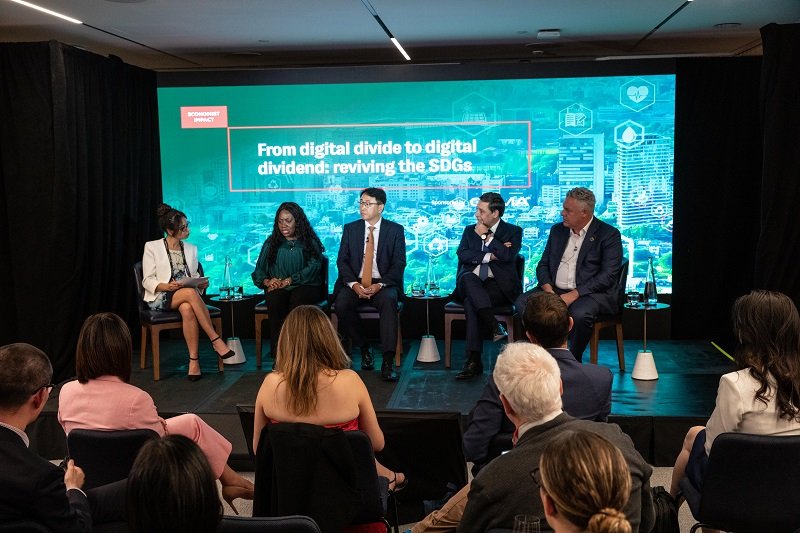Access to digital technologies is a catalyst for economic growth and improved living standards, Chief executive of Telecel Ghana, Ing. Patricia Obo-Nai has said.
Reflecting on Ghana’s progress, she acknowledged the strides made in digital transformation, particularly in financial services, governance and education.
Ms Obo-Nai was speaking at a panel discussion on tackling connectivity barriers, addressing the internet usage gap and developing a more inclusive digital future during Climate Week 2024 in New York.
“Ghana has made significant progress in the last few years, by digitalising government services to reduce revenue leakage and improve efficiency in service delivery but to realise the full potential of digital transformation, we need intentional investment in connectivity to rural areas and digital skills development for young people,” she explained.
Hosted by policy and media think tank, Economist Impact and the Global System for Mobile Communications Association (GSMA) on the sidelines of the 74th session of the UN General Assembly, Ms Obo-Nai articulated her vision for overcoming the digital divide that hampers progress in achieving the UN Sustainable Development Goals (SDGs).
The panel, titled; ‘From Digital Divide to Digital Dividend: Reviving the SDGs’, brought together leaders from technology, academia, policymaking and civil society, in their quest to discuss solutions in digital connectivity for sustainable development.
Moderated by the Principal of Policy and Insights at the Economist Impact, Pratima Singh, other panelists were Chief Regulatory Officer of GSMA, John Giusti; Vice President for Digital Transformation at the World Bank, Sanbu Kim; and Mauricio Lizcano, Minister of Information Technologies and Communications for the Government of Colombia.
On how digital connectivity plays a role in advancing the SDGs, Ms Obo-Nai mentioned that equitable access to digital resources ensures that people in underserved areas can access crucial services.
“We are actively investing in fibre connectivity nationwide and providing cross border connectivity. We are empowering people to use digital products and services to better their lives and businesses. Beyond infrastructure, digital literacy initiatives, also ensure that all segments of society can utilise technology for greater inclusion and participation,” she mentioned.
Telecel Ghana’s substantial contribution to social impact through its Foundation helps to advance the UN SDGs 3, 4, 5, 8 and 10 on health, education and gender equality.
The Foundation’s Connected Health programme provides free rural ultrasound screening for expectant mothers in their communities to prevent them from travelling long distances to receive antenatal support and the results transmitted to doctors through the power of mobile technology.
The Connected Education initiatives including STEM training, tech labs and digital libraries have impacted over 100,000 young people, 14 universities and several basic and senior high schools in all 16 regions. Additionally, the Foundation’s women-centred digital and financial literacy training is helping more women in rural communities to be financially independent and digital savvy.
Answering the question on the role of policy and regulation in ensuring access to connectivity, Ms Obo-Nai said the potential of digital technologies is immense when paired with the right policy-making efforts.
BY TIMES REPORTER

